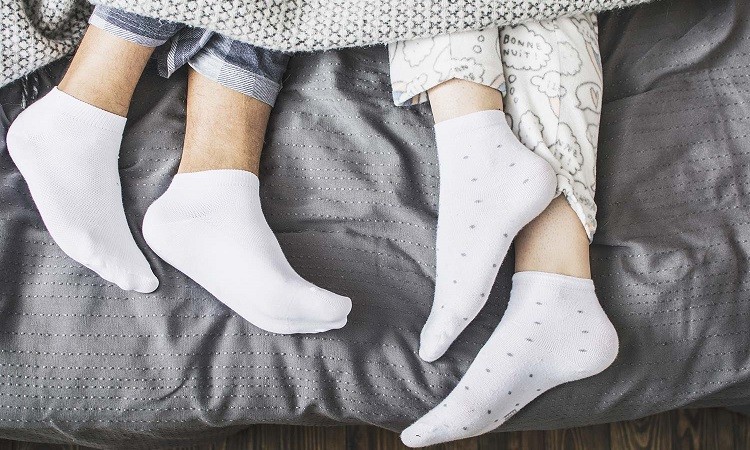
A restful night's sleep is a coveted luxury, yet achieving it isn't always straightforward. Stress, insomnia, and irregular work schedules plague many, disrupting their sleep patterns. And when winter sets in, coaxing oneself out of a warm bed becomes an arduous task. Some resort to wearing warm clothes to bed, seeking comfort within the cocoon of blankets. However, unbeknownst to many, these extra layers intended to keep warm might inadvertently lead to adverse health effects.
Experts have identified several potential negative health impacts associated with sleeping in certain types of clothes.
Socks: Donning socks to bed might seem cozy, but it can impede proper blood circulation to the legs, especially if they're too tight. It's essential to avoid tucking pyjamas tightly into socks, which further constricts blood flow. Opting for larger-sized socks or ensuring they're not overly tight can help maintain proper circulation. Additionally, recent studies have revealed the presence of bacteria like pseudomonas and E. coli in socks, similar to those found on doormats. Sleeping with these bacteria can lead to fungal infections and even urinary tract infections (UTIs).
Tight Pyjamas: Similar to socks, wearing tight-fitting clothing to bed can disrupt blood flow, making it challenging to achieve restful sleep. Tight clothing can also elevate body temperature, leading to excessive sweating, particularly in colder conditions. Instead, choosing breathable, cotton-based sleepwear can mitigate these issues.
Underwear: Sleeping in underwear is not recommended due to its discomfort and hindrance to proper ventilation for intimate areas. Allowing adequate airflow helps reduce moisture levels, lowering the risk of bacterial and yeast infections.
Optimal Bedtime Attire: For a better night's sleep, it's advisable to skip wearing underwear and opt for loose-fitting pyjamas made from breathable fabrics like cotton or silk. Ensuring the pyjamas aren't excessively tight or loose is crucial for comfort and healthy sleep.
The attire chosen for bedtime significantly impacts overall sleep quality and, consequently, one's health. Prioritizing comfort while also considering the breathability and fit of sleepwear can contribute to a more restful and healthier night's sleep.
Here's How to Recognize the Hidden Dangers of Repeatedly Using the Same Glass for Drinking Water
Let Mango and Lemon Take a Break: Now Papaya Takes Spotlight in Pickle Making! Here's Recipe